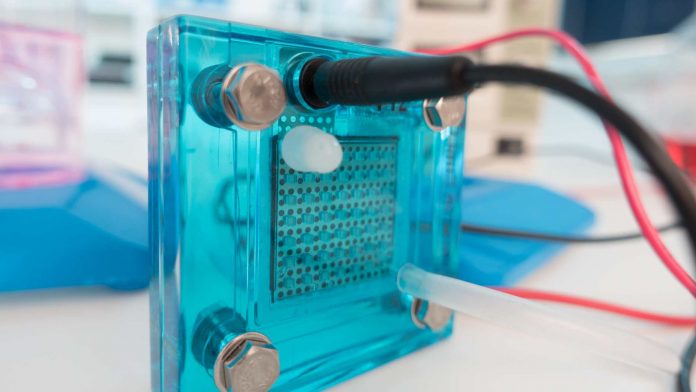Scientists from Japan have generated a novel hybrid metal capable of efficient proton transportation, potentially advancing fuel cell technology.
The research, led by the University of Tokyo in Japan and published in ACS Applied Materials & Interfaces, could rapidly accelerate the development of proton-based fuel cell technology – which rivals the power exerted by the contemporary solid-state fuel cell technology that provides power to space shuttles.
In previous attempts, high temperatures and humidity have ruled out potential candidate materials for proton transportation; however, the team aimed to overcome this by utilising a material called polyoxometalates (POMs), previously manufacturing it into a composite with another polymer and compounds to provide structural stability.
Masahiro Sadakane, the author of the paper, said: “POMs are attractive as building blocks for the design and synthesis of new materials with desirable properties and functions — they can efficiently transport protons, for example, but only at low temperatures and in low humidity. Unfortunately, a huge problem that remained to be solved is that our composite decomposed at higher temperatures and humidity.”
The team used the method of encapsulating positively charged ions into the materials cavities to overcome this obstacle, as positive ions – known as cations – restore balance to negatively charge ions – known as anions – stabilising the conductivity of the material.
Europium was chosen as the desired candidate for implementing into the material – a metallic element that at room temperature stays at a solid-state, proficient in its attraction to water molecules, consequently bringing external oxygen into the material. Transportation of protons is achieved by attaching to the oxygen, with the conductivity of the protons increased with more substantial amounts of oxygen.
Sayaka Uchida, a corresponding author of the study and Professor in the Department of Basic Science at the School of Arts and Sciences at the University of Tokyo, said: “Our goal is to produce stable high proton-conductive materials. Through fine control of the components, we produced such a material.”
The scientists aim to improve further the stability and proton conductivity of the material, which has already demonstrated high proton conductivity at temperatures of 368 degrees Kelvin (202.73 degrees Fahrenheit) and 50% humidity; efficient proton-based fuel cell technology could be realised sooner than expected.
“We plan to increase the stability and proton conductivity so that this material can be used as an electrolyte in fuel cells, enhancing their performance. This work could provide guidance for the design of solid-state proton conductors,” added Sadakane.








